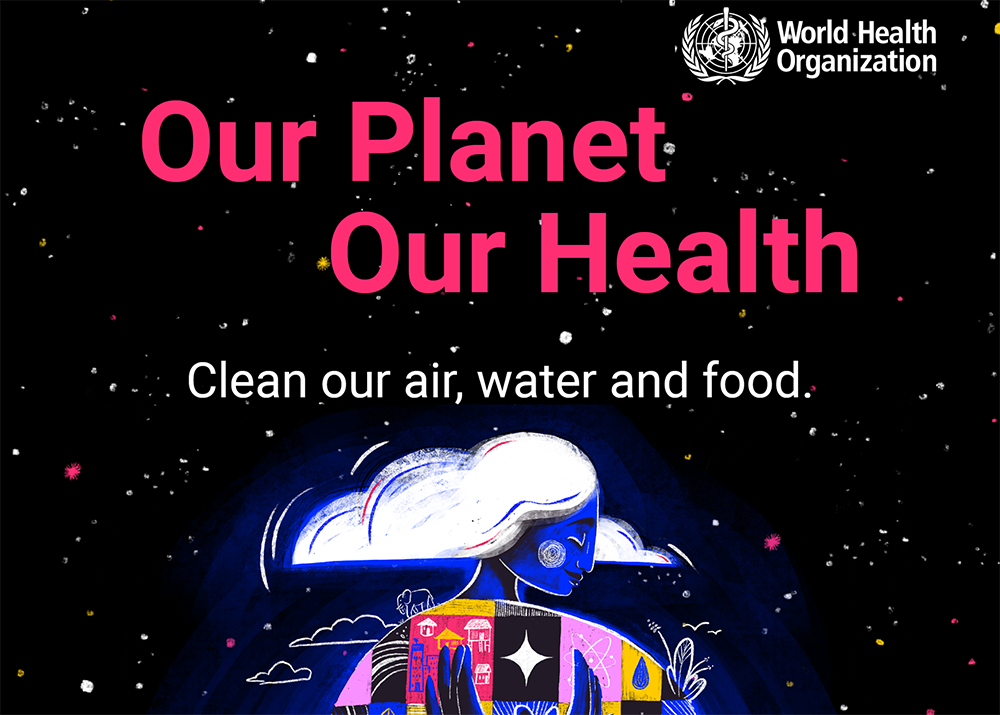The prognosis for the world on World Health Day is concerning. We are still battling a pandemic, and rising numbers in diseases like cancer, asthma and heart disease—while the planet itself is choking on pollution and being battered by climate change.
Given this confluence of challenges, it is appropriate that Our Planet, Our Health is the theme for 2022 World Health Day, which is marked every year on April 7.
It is a day to focus worldwide attention on “urgent actions needed to keep humans and the planet healthy and foster a movement to create societies focused on well-being,” the WHO says in a statement. “WHO estimates that more than 13 million deaths around the world each year are due to avoidable environmental causes.”
The problem of unhealthy air is documented in the WHO’s latest Air Quality Database, which was released Monday, and showed that 99% of the people in the world breathe air that does not meet WHO standards.
Environmental pressures
Our economic, political, and social actions are making us, and our world, less healthy–and having a severe impact on pollution, as well as “the climate crisis, which is the single biggest health threat facing humanity. The climate crisis is also a health crisis,” according to the WHO. “Over 90% of people breathe unhealthy air resulting from burning of fossil fuels. A heating world is seeing mosquitos spread diseases farther and faster than ever before. Extreme weather events, land degradation, and water scarcity are displacing people and affecting their health.”
The threat caused by mosquitos is one of many reasons why there has been a greater focus on a “One Health” perspective, which recognizes the need to take a holistic approach to the health of humans, animals, and ecosystems. The WHO last week released its latest annual report from the High Level Working Group on One Health, which notes that COVID-19, a zoonotic disease that jumped species, is a One Health issue.
Equity in human health
When it comes to human health, the COVID-19 pandemic showed us the remarkable possibilities of science, but it also “highlighted the inequities in our world,” according to the WHO statement. “The present design of the economy leads to inequitable distribution of income, wealth and power, with too many people still living in poverty and instability.”
The WHO advocates an approach that focuses on “well-being societies,” committed to equitable provision of healthcare and sustainable stewardship of the environment.
“A well-being economy has human well-being, equity and ecological sustainability as its goals. These goals are translated into long-term investments, well-being budgets, social protection and legal and fiscal strategies,” says the WHO statement. “Breaking these cycles of destruction for the planet and human health requires legislative action, corporate reform and individuals to be supported and incentivized to make healthy choices.”




